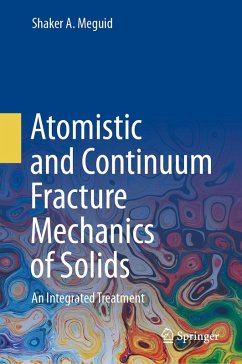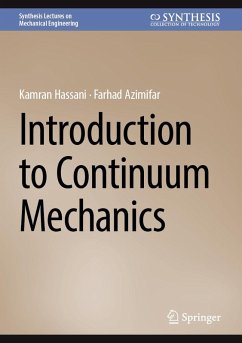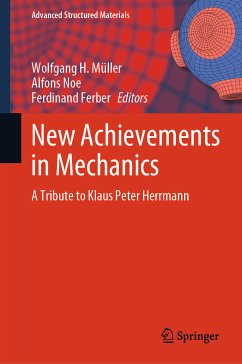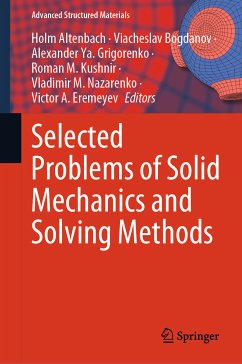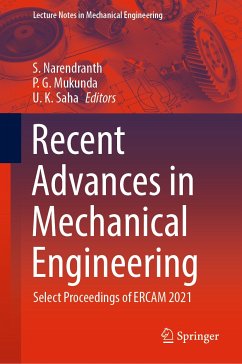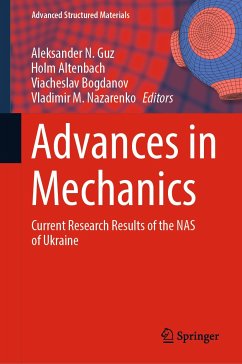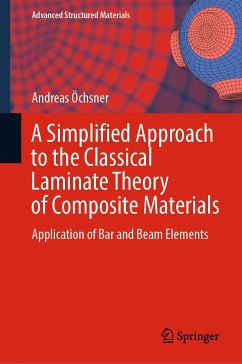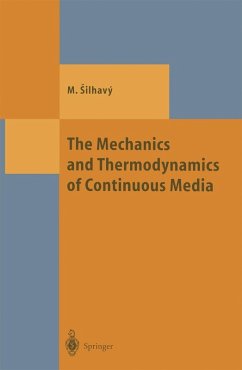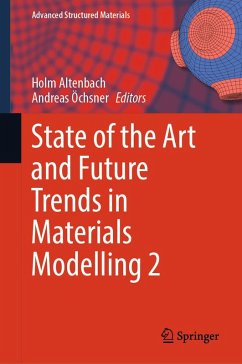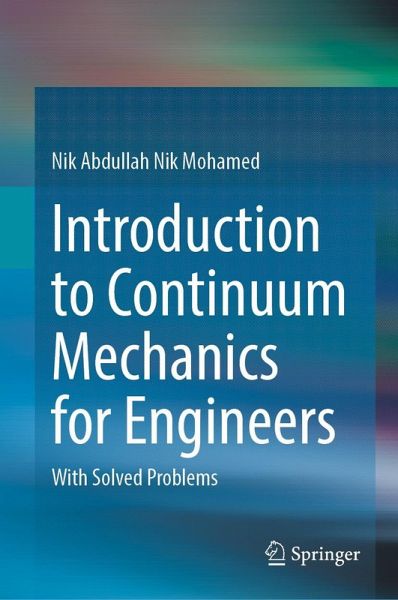
Introduction to Continuum Mechanics for Engineers (eBook, PDF)
With Solved Problems
Versandkostenfrei!
Sofort per Download lieferbar
48,95 €
inkl. MwSt.
Weitere Ausgaben:

PAYBACK Punkte
24 °P sammeln!
This textbook provides an overview of the fundamental concepts in continuum mechanics for application in real material behavior analysis. The contents cover basic topics such as Kinematics-the motion of any material point representing a material body using the Lagrangian and Eulerian approaches; stress tensors-stress analysis of material bodies experiencing small deformations; mathematical modeling of material properties in continuum mechanics; balance principles-transfer of specific mechanical properties from a system to its environment or vice-versa through the system boundary. The textbook ...
This textbook provides an overview of the fundamental concepts in continuum mechanics for application in real material behavior analysis. The contents cover basic topics such as Kinematics-the motion of any material point representing a material body using the Lagrangian and Eulerian approaches; stress tensors-stress analysis of material bodies experiencing small deformations; mathematical modeling of material properties in continuum mechanics; balance principles-transfer of specific mechanical properties from a system to its environment or vice-versa through the system boundary. The textbook also contains pedagogical elements such as worked examples and end-of-chapter exercises which are derived from typical engineering problems, and the solution manual so that students can solve computational problems by running simulations on Matlab or Python on their own. This benefits engineering students understand the concept of continuum mechanics for future analysis using finite-element analysis, boundary element method or any other computational methods.
Dieser Download kann aus rechtlichen Gründen nur mit Rechnungsadresse in A, B, BG, CY, CZ, D, DK, EW, E, FIN, F, GR, HR, H, IRL, I, LT, L, LR, M, NL, PL, P, R, S, SLO, SK ausgeliefert werden.



